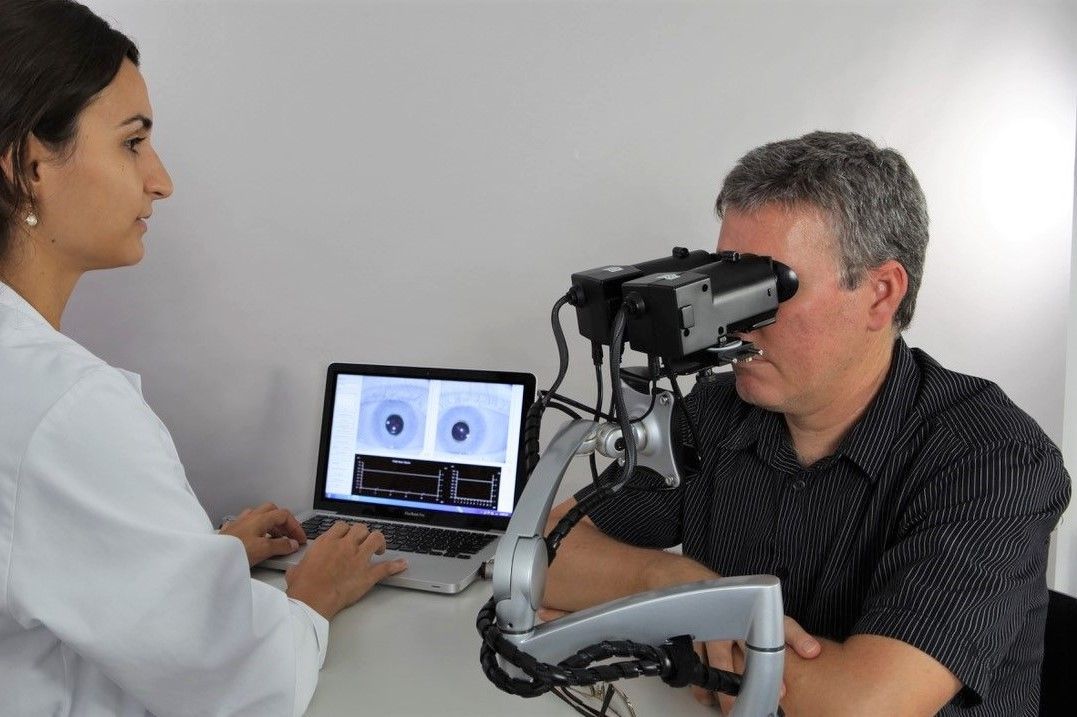Visual disorders are usually not just eye diseases. Their cause may lie deep in the brain. For this reason, they should be clarified jointly by ophthalmologists and neurologists.
The fact that our eyes provide us with information is one of the brain’s main tasks. Around two thirds of its cells are solely responsible for controlling eye movements and processing visual impressions. “Ultimately, the eye is nothing more than a protrusion of the brain,” explains Konrad P. Weber, Senior Physician meV at the Department of Neurology and Eye Clinic at the USZ.
It is therefore no wonder that many visual disorders have a neurological cause. Problems can occur all the way from the retina via the optic nerve to the various visual centers. The same applies to the reverse path from the brain to the nerves that control eye movements and pupil reactions.
Neuro-ophthalmology deals with the interface between ophthalmology and neurology. At the USZ, this is part of the interdisciplinary center for vertigo and neurological visual disorders, which is now being operated at Zurich Airport. Experts from various disciplines work closely together here. “Nevertheless, the distances are as short as in a doctor’s surgery,” says Weber.
Visual disturbances can be a sign of serious illnesses. Multiple sclerosis (MS), for example, often manifests itself through inflammation of the optic nerve. For this reason, a thorough, interdisciplinary assessment is recommended. Symptoms that indicate a neurological visual impairment include double vision, visual field restrictions, changes in the position of the eyelids or unevenly sized pupils.
Independent ophthalmologists and neurologists can refer patients to the interdisciplinary vertigo center at the USZ for a comprehensive assessment. Diagnosis is carried out with interdisciplinary expertise and state-of-the-art infrastructure. For example, a pupillometer is available – a type of infrared binoculars that can determine the size and function of the pupils. Strabismus can also be tested with the help of special video glasses.
Neuro-ophthalmology also cooperates with a close network of specialists, for example from the fields of ORL, neuroimmunology, neurosurgery and neuro-oncology. Specific training courses are also offered to make it easier to deal with visual impairments. In the case of visual field loss (hemianopsia), for example, patients learn to correctly assess everyday situations by projecting images with a projector.
The Department of Neuro-Ophthalmology at the USZ offers two special consultation hours:
– For efferent visual disorders (e.g. eye movement disorders, eye muscle paralysis)
– as well as for afferent visual disorders (e.g. optic neuritis, strokes and tumors in the visual pathway).
Both consultation hours are offered both at Zurich Airport and at the Zurich Campus.

